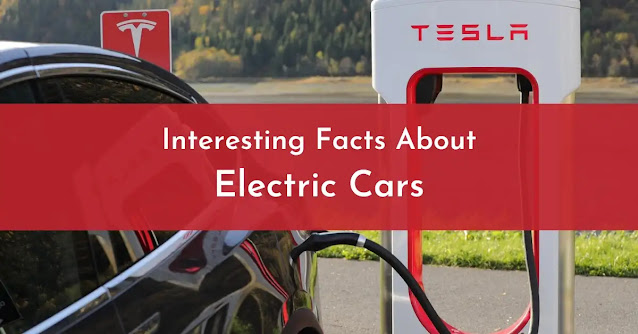The Future is Electric: Discover 25 Fascinating Facts About Electric Cars
Electric cars have been around for more than a century, but they have recently become a popular topic as the world seeks cleaner energy sources.
These cars run on electric motors powered by rechargeable batteries, and they offer numerous benefits such as reduced air pollution and lower operating costs. In this article, we'll explore 25 interesting facts about electric cars.
Powering Up: 25 Shocking Facts About Electric Cars You Need to Know
1. The first electric car was developed in 1837, before the invention of the gasoline-powered car.
2. Electric cars were popular in the early 1900s, but gasoline cars eventually became dominant due to their longer range and lower cost.
3. In 2008, Tesla Motors launched its first electric sports car, the Tesla Roadster, which had a range of 245 miles per charge.
4. The Nissan Leaf, which was launched in 2010, is the best-selling electric car in history, with over 500,000 units sold worldwide.
5. The Tesla Model S is the longest-range electric car, with a range of up to 402 miles per charge.
6. Electric cars emit zero tailpipe emissions, making them an environmentally friendly alternative to gasoline cars.
7. In some countries, electric cars are exempt from certain taxes and fees, such as road taxes and congestion charges.
8. Electric cars are typically more expensive to purchase than gasoline cars, but they offer lower operating costs due to the lower cost of electricity compared to gasoline.
9. Many electric cars are designed to look like traditional gasoline cars, but some models have unique designs that stand out.
10. Electric cars have fewer moving parts than gasoline cars, which means they require less maintenance and are more reliable.
11. Electric cars are very quiet, which can be a disadvantage for pedestrians who rely on sound to detect approaching vehicles.
12. In some countries, electric cars are eligible for government incentives and subsidies, which can help reduce the cost of ownership.
13. The batteries in electric cars can be recycled, which reduces the environmental impact of manufacturing new batteries.
14. Electric cars are not affected by fluctuations in gasoline prices, which can make them more attractive to consumers during periods of high gasoline prices.
15. Electric cars can be charged using a variety of methods, including conventional wall outlets, dedicated charging stations, and fast charging stations.
16. Many electric cars can be charged using solar panels, which allows them to run on clean, renewable energy.
17. Some electric cars have regenerative braking, which captures energy from the brakes and uses it to recharge the battery.
18. Electric cars have a lower center of gravity than gasoline cars, which makes them more stable and less prone to rollover accidents.
19. Electric cars can accelerate faster than gasoline cars, due to the high torque of electric motors.
20. Electric cars are becoming more affordable as the cost of batteries continues to decrease.
21. Electric cars can be remotely controlled using a smartphone app, which allows owners to monitor battery levels and even start the car from a distance.
22. Electric cars can be used to store excess energy from the electric grid, which can be used to power homes and businesses during periods of high demand.
23. Electric cars can be charged using renewable energy sources, such as wind and solar power, which makes them even more environmentally friendly.
24. Some electric cars have advanced safety features, such as automatic emergency braking and lane departure warning systems.
25. Electric cars are part of a larger trend towards clean energy and sustainable transportation, which is essential for reducing greenhouse gas emissions and mitigating the effects of climate change.
In conclusion, electric cars offer numerous benefits over traditional gasoline cars, including lower operating costs, zero tailpipe emissions, and advanced features such as regenerative braking and remote control.
As technology continues to improve, electric cars will become even more affordable and efficient, making them an increasingly attractive option for environmentally conscious consumers. Furthermore, the shift towards electric cars is an important part of the transition to clean energy and sustainable transportation, which is essential for combating climate change.
One of the main challenges facing electric cars is the limited range of the batteries, which can make long-distance travel difficult.
However, this is becoming less of an issue as the range of electric cars continues to increase, and charging infrastructure becomes more widespread.
Another challenge is the higher upfront cost of electric cars, which can be a barrier to adoption for some consumers.
However, this is offset by lower operating costs over the lifetime of the vehicle, which can make electric cars more affordable in the long run.
Overall, electric cars represent a promising technology for reducing greenhouse gas emissions and transitioning to a more sustainable transportation system.
As more consumers adopt electric cars, this will help drive down the cost of batteries and spur the development of new charging infrastructure, making electric cars an increasingly viable option for consumers around the world.


No comments:
Post a Comment